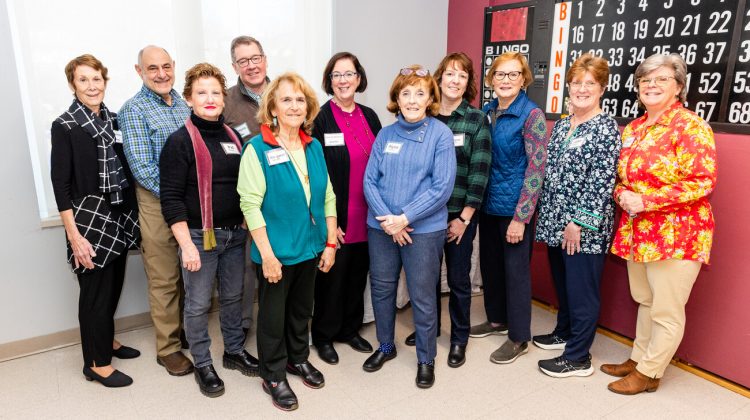SWAMPSCOTT — Community members gathered at the senior center on Saturday morning to attend a retirement seminar that covered topics like finances, Social Security, and the importance of socialization.
By the time the event was ready to begin at 10 a.m. sharp, the center was already packed full of people eager to hear speakers Bill Harris, Dori Mintzer and Marcia Mantell. Harris, the first of the three speakers, spoke about finances. Harris is the co-founder of WH Cornerstone Investments and the author of “Inheriting Your Spouse’s IRA: The Widow’s Guide to Keeping More of Her Assets.”
“It’s exciting to be here today. I’m very passionate about educating people about retirement, financial planning, and those kinds of topics, so it’s great to be here with a great crowd on Saturday morning,” Harris said.
With over 30 years in the financial industry, Harris prides himself in helping people navigate the uncharted waters of this next phase of life. Harris is a certified financial planner, Retirement Management Advisor, and Certified Exit Planning Advisor.
Harris covered several topics during his presentation on the financial side of retiring, such as maintaining a Household Balance Sheet (HHB), being financially responsible, and the wealth gap in what people might have versus what they might need.
Mintzer, who was the second person to speak, talked about how retirement isn’t the beginning of the end — it’s merely a new beginning. She spoke to residents about the importance of continuing to “grow” in this new phase of life, highlighting the crucial need for purpose and personal development.
She began by talking about what she referred to as the Longevity Revolution, where she addressed the fact that the life expectancy of people has continued to expand.
“I also wanted to talk about the idea of elderhood, how we can continue to grow, and not in a negative way,” Mintzer said. “Not elderly, but people who are elders are sort of like sages. I’m 79, and I have 79 years of life experience.”
“We are living longer, we don’t know how long, but knowing we can’t live forever helps us appreciate life more,” she said. “But now it’s not the same paradigm…we have bonus years now.”
She said that in the past, people lived three to four years after retirement. “In the past, retiring meant retiring from life, and when life expectancy was shorter… but retirement now is no longer a destination.”
Mintzer spoke on the different options people have as they approach retirement. “Some people in some industries work past their retirement age, some people want leisure, others go onto what we call ‘encore careers,’” she said. “There’s no right way, but we want to keep in mind we don’t want to outlive our money.”
Mintzer continued, “There really are so many more options for people to consider these days…It’s a chance of reinvention.”
The third speaker, Mantell, dove into the history of Social Security and Medicare, where she explained that life expectancies have become a “moving target” in today’s age as people continue to live longer. “Someone could say, ‘Oh, my life expectancy is 84’, but no…it’s 84 if you live to 65, and if you live to 75, then it’s now 87, or if you live to 85, then it becomes 94,” Mantell said, “but, regardless, we can’t run out of money.”
Mantell explained how financial security could be key to maintaining the kind of personal fulfillment and fundedness the previous speakers touched upon. “We also have to be really smart about when we do claim Social Security, and how important it is to live successfully in retirement, and to be able to do all the purposeful things that Dorian (Mintzer) said, as well as maintaining that fundedness that Bill (Harris) talked about.”

